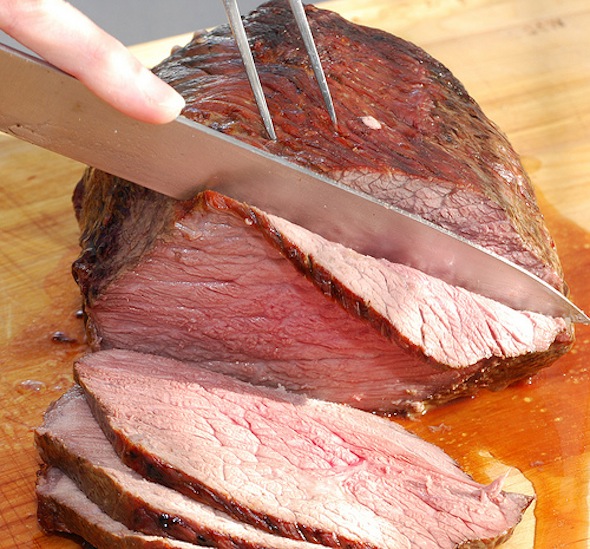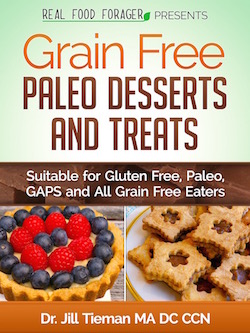All the vegans (and Dean Ornish) must have been elated when the Harvard School of Public Health reported that eating meat causes premature death and disease. The analysis, published in The Archives of Internal Medicine, looked at data from two studies. The study population was 121,342 men and women who filled out questionnaires about health and diet from 1980 through 2006. Stop right there.
Dietary recall is the worst method
As far as I am concerned, a study that involves writing down what you ate (dietary recall) is completely invalid. I hardly remember everything I ate today, much less a few days ago. I may be embarrassed about what I ate (and how much) and would be inclined to fudge the data a little. Relying on people to fill out questionnaires about what they ate truthfully and in a timely way is naive.
I ask every nutrition patient that comes into my office for a diet diary of the previous week and it is comical to see what the majority bring in. It may be scribbled on a tiny piece of paper and sorely incomplete. Any scientist knows that a diet questionnaire is the worst possible method used to assess someone’s diet.
Observational studies show association not cause
Researchers use these observational studies in many reviews and make claims that an association observed in the study has a causal relationship. As Gary Taubes has observed,
every time that these Harvard researchers had claimed that an association observed in their observational trials was a causal relationship—that food or drug X caused disease or health benefit Y—and that this supposed causal relationship had then been tested in experiment, the experiment had failed to confirm the causal interpretation—i.e., the folks from Harvard got it wrong. Not most times, but every time.
In this observational study, the Harvard researchers found, 23,926 deaths in the group, including 5,910 from cardiovascular disease and 9,464 from cancer. That led them to conclude,
Red meat consumption is associated with an increased risk of total, CVD, and cancer mortality. Substitution of other healthy protein sources for red meat is associated with a lower mortality risk.
Good science dictates that a hypothesis is made and then you do your best to refute it. Testing the hypothesis is the best way to prove it. If you keep testing it and it appears to be right then maybe, just maybe, it is right. In this observational study there was no testing. They jumped right to the conclusion.
As Taubes suggests in his article, the end result here, (based on flawed science from questionnaires) is an association. This would then need to be studied further with (hopefully) real experiments.
Additionally, the actual risk they have observed is only a 0.2 fold increased risk. Usually not less than a 3 – 4 fold increase is taken seriously and then it is studied.
Taubes has compared this 0.2 fold risk to the risk from cigarette smoking and getting lung cancer which is 20 fold. Now that is something to get concerned about.
Alternative explanations
After you figure out the association, good science dictates that you try to explain it. Here, the association between meat eating and increased risk of death and dying (the tiny 0.2 fold increase) would be to think of the differences between people who eat a lot of meat and those who do not. It’s not too hard to see a difference between people who may be eating at fast food joints and eating a lot of rancid polyunsaturated oils as well (who may also smoke, drink and sit a lot) and those who have forgone meat in the interest of their health (health conscious people who do other things like exercise regularly to protect their health).
A better way to research this question has actually been done in studies comparing Atkins type diets with Dean Ornish type diets. According to Taubes,
And when these experiments have been done, the meat-rich, bacon-rich Atkins diet almost invariably comes out ahead, not just in weight loss but also in heart disease and diabetes risk factors… Over the course of the experiment—two years in this case—the subjects randomized to the Atkins-like meat- and bacon-heavy diet were healthier.
The most important flaw in this study
In my mind, the most important issue here, aside from the poor science, is the fact that they are using red meat from the commercial meat industry — feedlot meat that is totally different in fat composition than meat that is from a grassfed cow.
Factory feedlot meat will kill you
The meat from feedlot cows is unhealthy. The cows are finished with grains. These grains are genetically modified corn and soy. The heath consequences of eating this meat is unknown. Furthermore, the grains are sprayed with pesticides. This unnatural diet changes the chemical composition of the fat in the meat to dangerous fats full of pesticides and GMOs.
Grassfed cows have plenty of the natural trans fat CLA (conjugated linoleic acid) which has been shown to be very healthy. Numerous studies have indicated that CLA is an anti-cancer agent that fights a wide variety of tumors, including bladder, brain, skin, breast, colon and prostate. It appears that CLA blocks initiation, promotion and metastasis — three of the four stages of cancer. Additionally, CLA has been found to lower LDL levels, and prevent bone loss.
Eating ethically and humanely raised animals for food is satisfying physically, emotionally and spiritually. In the face of rhetoric from all corners, the USDA, FDA, American Heart and now Harvard scientists, it is clear that animals raised on pasture offer us nutrient dense foods that are unsurpassed.
The next investigation into the heath benefits (or not) of meat should be to compare people eating traditionally raised grassfed beef to those eating commercial feedlot beef. I would certainly like to see the results of that study!
What do you think? Leave a comment and let me know!
Check out the Red Meat Won’t Kill You Facebook Page @Hartkeisonline!
Related articles:















